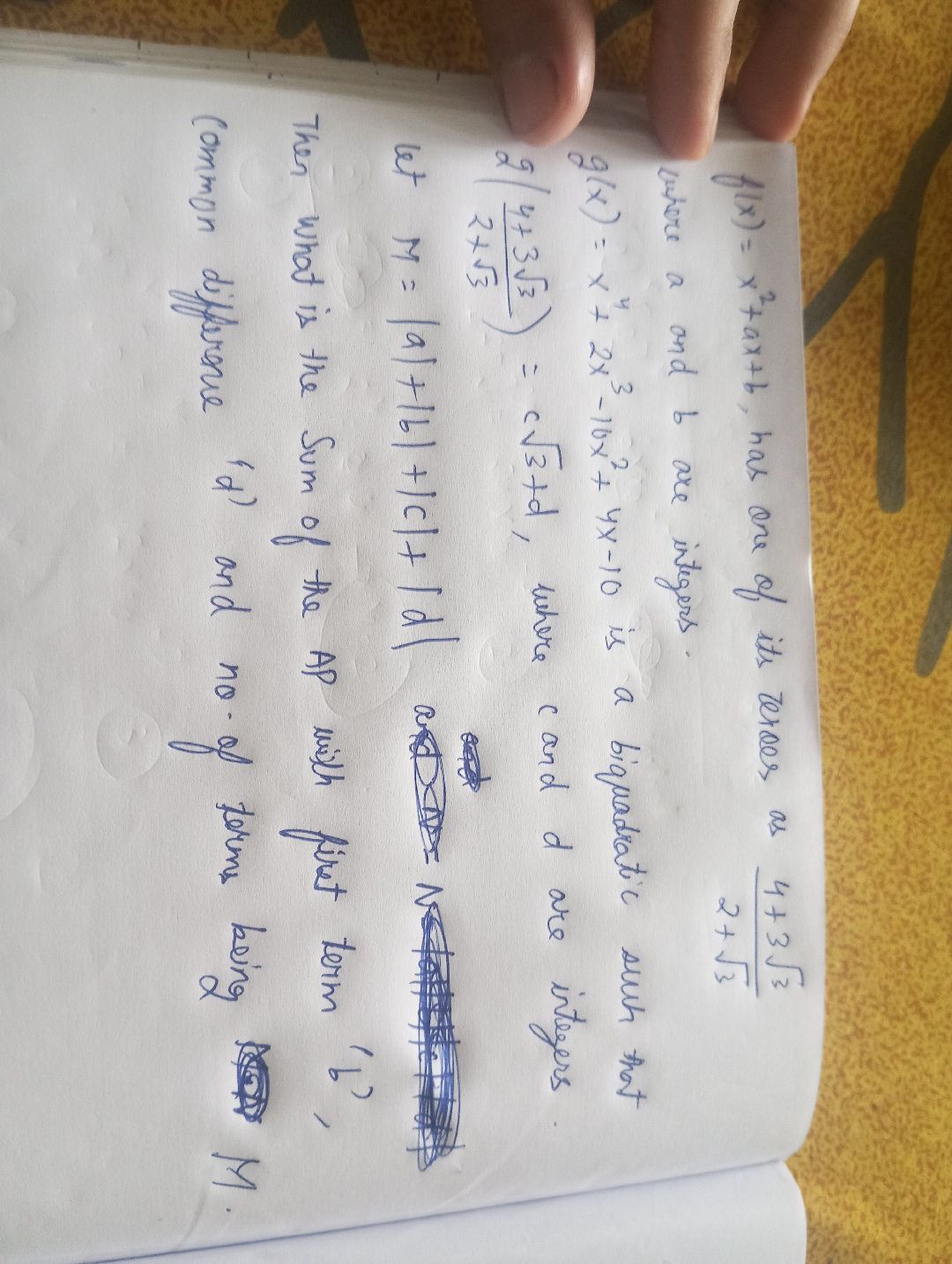Question
Question: $f(x) = x^2 + ax + b$, has one of its zeroes as $\frac{4+3\sqrt{3}}{2+\sqrt{3}}$ where a and b are i...
f(x)=x2+ax+b, has one of its zeroes as 2+34+33 where a and b are integers.
g(x)=x4+2x3−10x2+4x−10 is a biquadratic such that g(2+34+33)=c3+d, where c and d are integers.
let M=∣a∣+∣b∣+∣c∣+∣d∣.
Then what is the Sum of the AP with first term 'b', common difference 'd' and no. of terms being M.

-351
Solution
-
Simplify the given root: Let x0=2+34+33. Rationalize the denominator: x0=(2+3)(2−3)(4+33)(2−3)=22−(3)28−43+63−9=4−3−1+23=−1+23.
-
Find coefficients a and b for f(x): f(x)=x2+ax+b, where a,b∈Z. Since −1+23 is a root and coefficients are integers, its conjugate −1−23 must also be a root. Sum of roots: (−1+23)+(−1−23)=−2. From Vieta's formulas, sum of roots =−a. So, −a=−2⟹a=2. Product of roots: (−1+23)(−1−23)=(−1)2−(23)2=1−12=−11. From Vieta's formulas, product of roots =b. So, b=−11. Thus, f(x)=x2+2x−11.
-
Evaluate g(x) at the root x0: Let x=x0=−1+23. From f(x)=0, we have x2+2x−11=0, which implies x2=−2x+11. We can divide g(x) by x2+2x−11: g(x)=x4+2x3−10x2+4x−10. Using polynomial division or substitution: g(x)=(x2+1)(x2+2x−11)+(2x+1). Since x02+2x0−11=0: g(x0)=(x02+1)(0)+(2x0+1)=2x0+1. Substitute x0=−1+23: g(x0)=2(−1+23)+1=−2+43+1=43−1.
-
Find coefficients c and d: We are given g(x0)=c3+d, where c,d∈Z. Comparing 43−1 with c3+d, we get c=4 and d=−1.
-
Calculate M: M=∣a∣+∣b∣+∣c∣+∣d∣ M=∣2∣+∣−11∣+∣4∣+∣−1∣=2+11+4+1=18.
-
Calculate the sum of the AP: The AP has: First term = b=−11. Common difference = d=−1. Number of terms = M=18. The sum of an AP is Sn=2n[2×first term+(n−1)×common difference]. S18=218[2(−11)+(18−1)(−1)] S18=9[−22+(17)(−1)] S18=9[−22−17] S18=9[−39] S18=−351.
